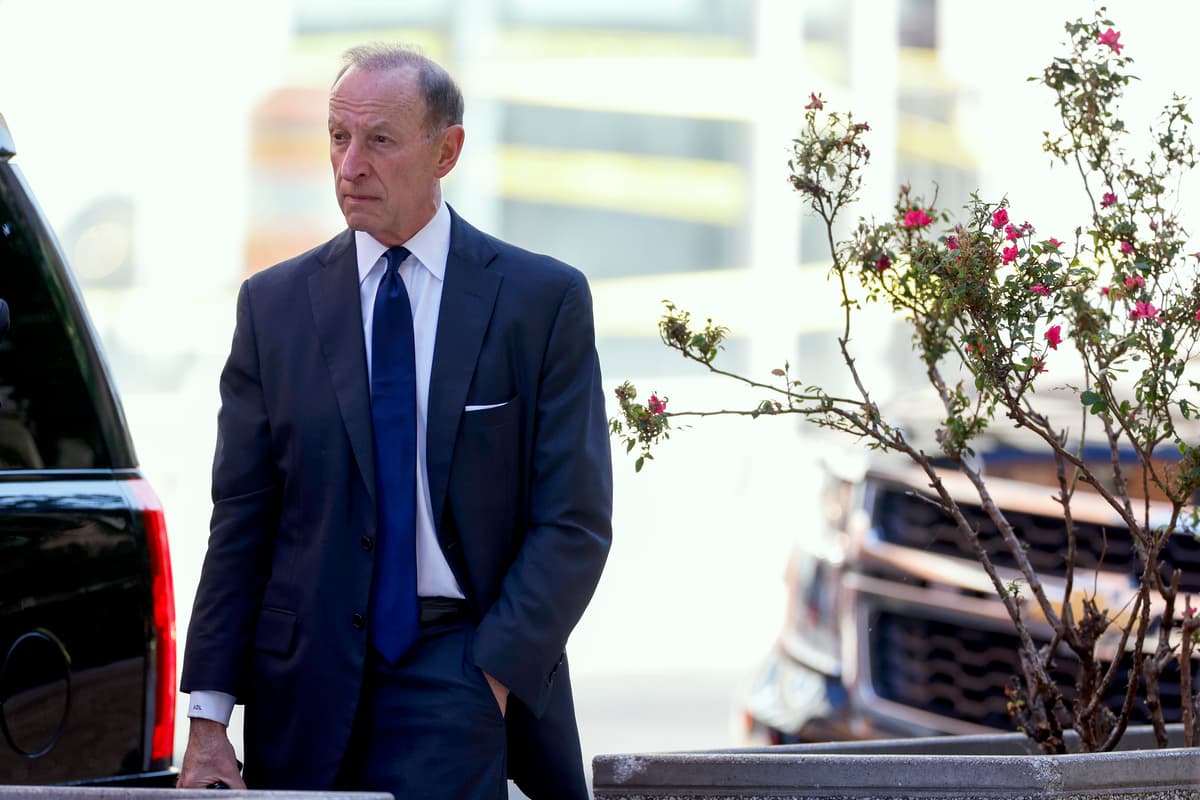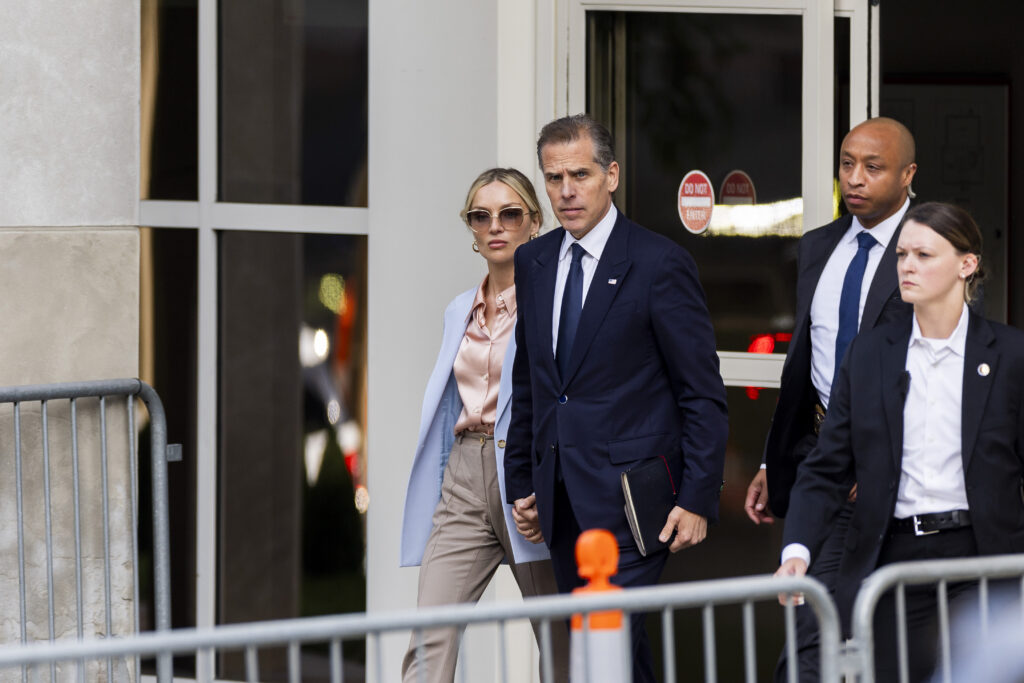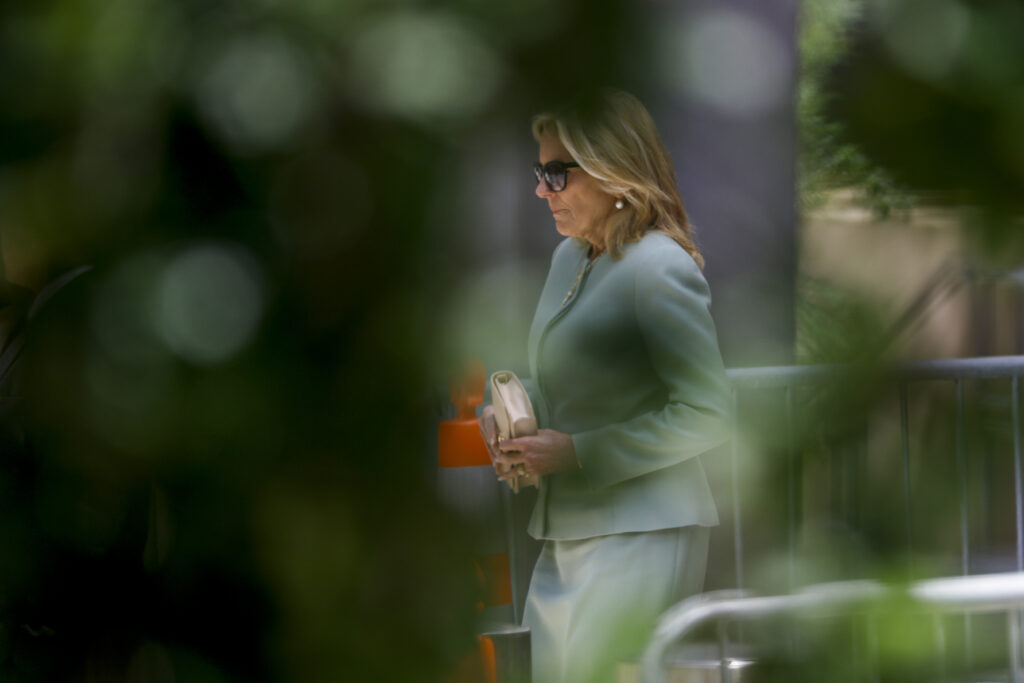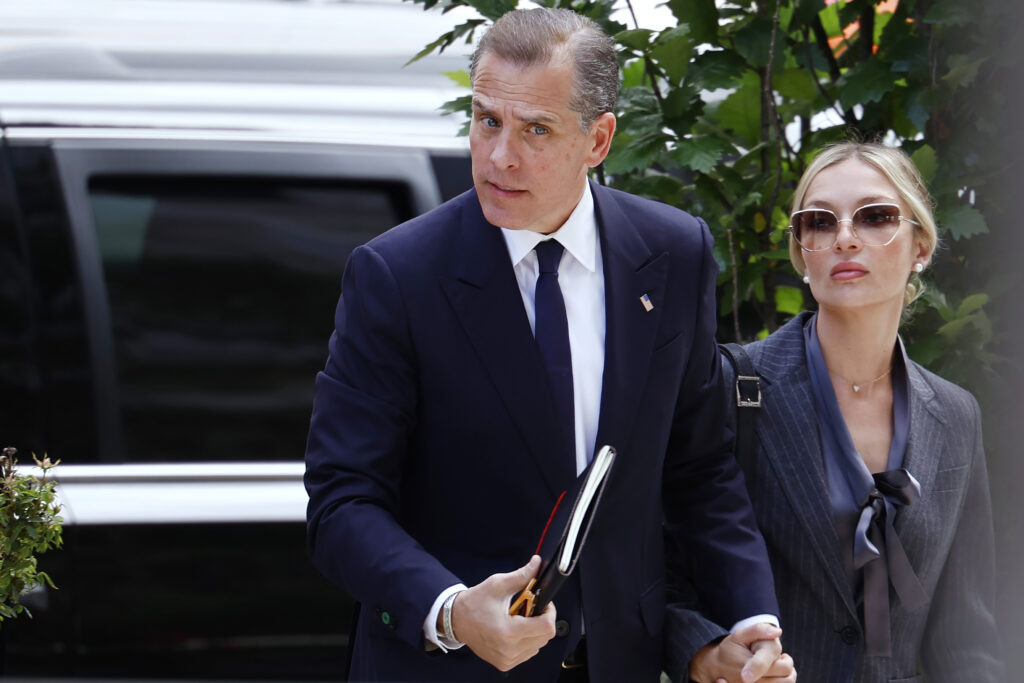Hunter Biden’s Lawyer Prepares for an All-Out Assault on Federal Investigators’ Methods in Hopes of Saving the First Son
During a short cross-examination session on Tuesday afternoon, Mr. Lowell betrayed how aggressive his defense strategy will be in the coming days.

Hunter Biden’s lawyer, Abbe Lowell, is preparing an all-out assault on the credibility of the federal agents and prosecutors who are putting the first son on trial for buying a firearm in 2018 while, the government claims, he was actively addicted to drugs.
When Mr. Lowell briefly took to the lectern late Tuesday afternoon to question a prosecution witness, he made it clear that the defense will argue that the government has no proof Mr. Biden — despite his very public battles with substance abuse — was actively addicted to crack cocaine at the moment he bought the gun.
For most of the day on Tuesday, the lead prosecutor for the government, senior assistant special counsel Derek Hines, questioned an FBI special agent named Erika Jensen — a 20-year veteran of the agency who has spent decades investigating criminal organizations, violent crimes, and the drug trade.
Mr. Hines asked Ms. Jensen to read from a prepared document that contained hundreds of personal text messages recovered from Mr. Biden’s now-notorious laptop and his cell phone in the course of the government’s investigation. Messages included Mr. Biden calling his then-girlfriend and his female friend profane names, asking his drug dealers to meet him immediately, and demanding respect from those in his life who he felt did not understand his addiction.
Just half an hour before court recessed for the day, Mr. Hines finished questioning his own witness, and Mr. Lowell began his cross-examination. He noted that Ms. Jensen — who compiled the document containing Mr. Biden’s texts and emails — often failed to mention the exact date some messages were sent.

In one text exchange that Ms. Jensen read aloud, Mr. Biden was arguing with one of his drug dealers. In total, the two men exchanged 62 messages in just one day about buying crack cocaine.
Mr. Lowell calmly stood at the podium and pointed out to Ms. Jensen that the salacious texts she was reading were from February 2019 — nearly six months after Mr. Biden bought the gun in October 2018.
Ms. Jensen hurriedly flipped through her binder and could not find so extensive a text exchange about drugs from 2018, around the time Mr. Biden bought the gun.
Mr. Lowell also pointed to Mr. Biden’s memoir, “Beautiful Things,” excerpts of which were read to the jury by Mr. Biden himself on Tuesday via audiobook recordings he made in 2021. Those recordings included damning information about Mr. Biden’s addiction, but no timeline in the book ever explicitly states that the first son was using drugs around the time he purchased the gun in October 2018.

The closest Mr. Biden came to admitting guilt in that book, Mr. Lowell argues, was the description of his travel to Delaware from California in early 2018 and his admission to using drugs for “a few months” upon his return home. Mr. Lowell stated to the jury that there is evidence that Mr. Biden got sober, for a time, during those few months in 2018 when he was home, at Wilmington, before returning to active addiction in 2019.
When Mr. Hines was questioning Ms. Jensen earlier that afternoon, she disclosed that Mr. Biden had withdrawn more than $150,000 worth of cash from ATMs between September and November 2018, seemingly to buy drugs. Just 72 hours before Mr. Biden’ bought his firearm — a Colt Cobra .38 Special — he withdrew nearly $9,000, even though the gun and its accouterments cost just under $900.
Shortly before Mr. Biden bought the firearm, he spent time at a drug and alcohol rehabilitation facility in California. Mr. Lowell asked Ms. Jensen if she knew exactly who paid for that treatment or what method was deployed in order to satisfy the invoices from the facility.
Ms. Jensen said she did not know, which led Mr. Lowell to raise the possibility that Mr. Biden was withdrawing those large sums of cash to pay for his own treatment.

Mr. Biden is admittedly an alcoholic as well as a recovering crack cocaine addict. Mr. Hines and Ms. Jensen made the case on Tuesday that because Mr. Biden said in his memoir that he “relapsed” in 2018 after his stay at the California rehab facility, the first son was admitting that he was using drugs at the time he bought the gun.
Mr. Lowell shot back at that assertion during his cross-examination. The defense attorney noted that many of the cash withdrawals around that time were made near liquor stores. “Couldn’t he have relapsed on alcohol, not hard drugs?” Mr. Lowell asked Ms. Jensen. “Did you investigate that?”
Ms. Jensen said she had not.
The law Mr. Biden is accused of violating is lying about his use of hard drugs, not alcohol.
Mr. Lowell will resume his questioning of Ms. Jensen first thing Wednesday morning in Delaware. Mr. Biden’s ex-wife, Kathleen Buhle — who had a front seat to his years-long addiction and allegedly abusive behavior — is expected to be called as the prosecution’s next witness, according to Mr. Hines’ opening statement.

